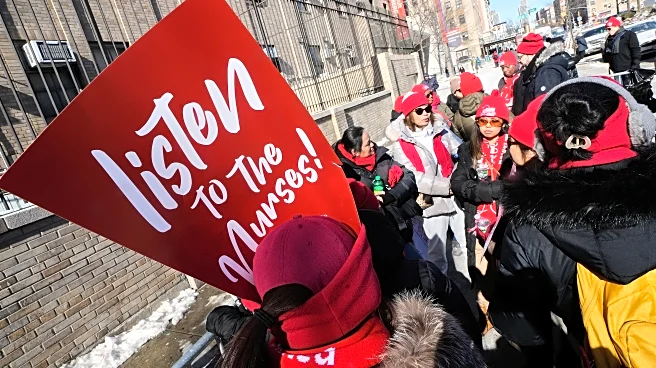What's Happening?
The Trump administration is considering a bailout program for farmers using tariff revenue, according to Agriculture Secretary Brooke Rollins. The U.S. agricultural industry faces challenges due to the administration's aggressive tariff policies, which have increased the cost of tools and equipment for farmers. Retaliatory tariffs from China have also affected soybean farmers, who previously relied on China for a significant portion of their exports. The potential bailout aims to compensate for economic losses caused by tariffs, but long-term impacts on agricultural markets remain uncertain.
Why It's Important?
The consideration of a bailout program highlights the economic challenges faced by U.S. farmers due to trade disputes and tariff policies. The use of tariff revenue to support farmers reflects the administration's efforts to mitigate the negative impacts of its trade policies on the agricultural sector. The situation underscores the complexities of global trade dynamics and the need for strategic responses to protect domestic industries. The potential bailout could provide short-term relief for farmers, but long-term competitiveness in global markets may still be at risk.
What's Next?
The Trump administration may announce a bailout package for farmers in the near future, using tariff revenue to address immediate economic losses. The program could help stabilize the agricultural sector, but ongoing trade disputes and tariff policies may continue to pose challenges. Farmers and industry stakeholders will likely monitor developments closely, as the situation could impact export opportunities and market access. The administration's approach to trade and agriculture will remain a key focus in future policy discussions.









